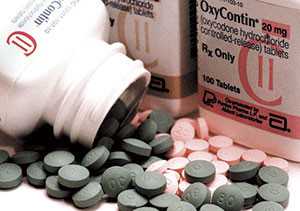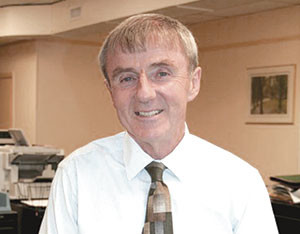By Sal Ghamo

The Cambridge Health Alliance and the Somerville Police Department are both developing programs that will potentially lead to more effective drug addiction recovery methods.
It doesn’t matter if you come from a wealthy family or a poverty stricken one, anyone can be a victim of the detrimental effects that drugs have when abused. The increase in addiction and the long lasting effects of opioid abuse is just as evident in colleges as it is in prisons.
The Cambridge Health Alliance (CHA) has been directly involved with the city in regards to strategic planning around the recovery of individuals suffering from poor mental health and addictions. The CHA is currently working side by side with city officials to solve the opioid problem, and work towards a better future for the people of Somerville.
When a patient joins the Cambridge Health Alliance they can expect more than just a detox bed. The CHA’s goal is to help an individual experience a full rehabilitation, and the opportunity have a fresh start in their community as opposed to only receiving partial treatment. The Community Outreach and Harm Reduction (CORE) program, operated by Patricia Contente, is now up and running at the Somerville Police Department.
Police Chief David R. Fallon attributes Somerville’s decrease in overdoses to the collaborative approach the city takes to the issue. The police department is currently preparing to send a handful of officers to Connecticut for Recovery Coach Training. The CHA is working with the city to create in-home rehab for recovering addicts. Recovery Coaches will function as monitors that will enter patients’ residents to make sure there are no drugs or alcohol so they can successfully begin their treatment.
The police department also recently hosted a 4-hour session of crisis intervention training, and next month they plan to hold another 40-hour training session for police officers throughout the region.
The CORE program stationed at the police department has narrowed their focus down to three primary concerns: They are looking at calls relating to mental health, substance abuse, and domestic violence (with lots of overlap in between those). CORE uses their services to work with family members as well as individuals suffering because of an addiction.

Alderman at Large Jack Connolly advocates for reducing the amount of opiates used in pain management wherever possible in order to help stem the tide of drug abuse.
The goal, and concept, is to create a community cornerstone that people can lean on when they need help. The police department, the Community Outreach and Harm Reduction program, and Cambridge Health Alliance are all groups that have come together to focus on recovery and avoid arrest. CORE has also implemented a new program for students and parents called Life Skills, which focuses more on clinical substance use and making healthy decisions. The classes for this program will begin in May and continue through June.
What these programs have in common is that they all look at recovery as a lifelong process. The most important part of this collaborative undertaking is providing individuals with an educational approach to their problems. The idea is to give people the tools they need to feel valuable again, and to help them understand that they have a role in their community.
Alderman at Large Jack Connolly recently told The Somerville Times, “What can we do collectively to help stem the flow of the source of the addiction? The opioids, the pain pills, those things have just been to a large degree over-prescribed. I think finding a medical community is getting around to realizing that maybe we’re not going to put the emphasis as much on making sure people have no pain, but to see how much [pain] people can tolerate. Let’s go to an approach where we’re looking at maybe instead of going with the most massive pain reducer, on those opiate drugs, and maybe start with something like an extra strength Tylenol and work your way up to something more severe.”
With the collaboration between CHA and the city of Somerville, people are being given the opportunity to make better choices and educate themselves for a better future, one that is free of drug abuse.















Reader Comments